Coronavirus: Trump touts hydroxychloroquine drug treatment criticised by health officials
As the US enters its deadliest week, the President spruiks a malaria drug as a coronavirus saviour, but top doctor is unconvinced.
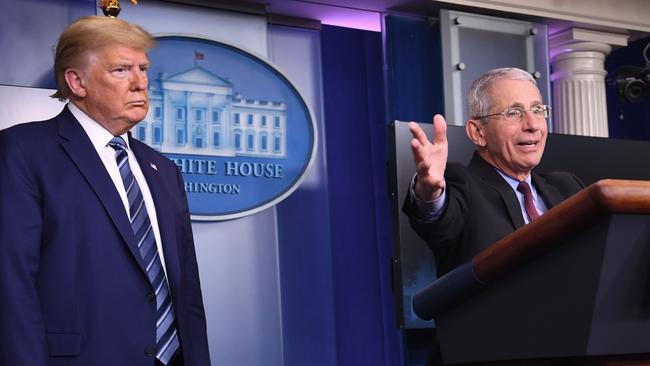
Donald Trump says he “hopes” to see the COVID-19 curve flatten in the next few days before spruiking a possible treatment that health authorities have criticised.
The US President said that over 3000 military personnel and public health officers have been sent to coronavirus hot spots including New York, New Jersey, the Connecticut area and Long Island.
“In the days ahead America will endure the peak of this terrible pandemic,” Mr Trump said.
“Our warriors in this life and death battle are the incredible doctors, nurses and health care workers on the frontline of the fight.
“We hope we are seeing a levelling off in the hottest spots. We will see over the next few days, we will see what happens.”
In the press conference, the president said the drug hydroxychloroquine has been “stockpiled” to help treat the symptoms of COVID-19.
The drug, used to treat malaria and other autoimmune diseases, has repeatedly been touted by the president as a viable way to treat the virus.
But the nation’s coronavirus adviser and infectious diseases doctor Dr Anthony Fauci said there is no evidence to support the use of hydroxychloroquine to treat coronavirus.
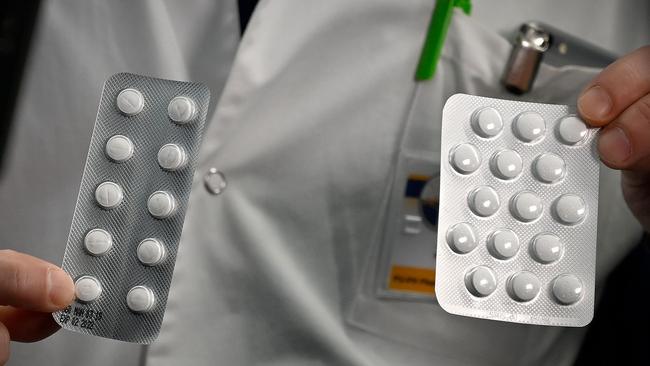
Unconvinced
“In terms of science, I don’t think we can definitively say it works,” he told CBS’s Face the Nation.
“The data are really just at best suggestive. There have been cases that show there may be an effect and there are others to show there’s no effect.”
But Mr Trump said there are “powerful signs” that the drug could be used.
It’s a powerful drug for malaria and there are some very strong signs that it works on this and in the meantime it’s been around a long time and also works very powerfully on Lupus,” he said.
Australian clinical trials
Australia, like the United States, has sourced hydroxychloroquine for trial, with Deputy Chief Medical Officer Paul Kelly on Saturday saying the drug may be used to treat coronavirus after clinical trials are conducted.
“At the moment it is an experimental drug, and there are some clinical trials that have started in Australia and elsewhere in relation to this,” Dr Kelly said.
“Some early work done in France is positive, but very preliminary, so to answer your question specifically, those drugs are aimed to be part of controlled clinical trials, to make sure that this drug is safe to use and is effective.”
Mr Trump said the US had stockpiled 29 million doses of hydroxychloroquine and that they are available at pharmacies.
He added 1,670,000 Americans have so far been tested for COVID-19.
We don’t have this under control: Fauci
Meanwhile, Dr Fauci, the US’s top infectious disease specialist, said it would take a week or more for the curve of new infections to begin to flatten, telling CBS news “to say we have it under control … would be a false statement.”
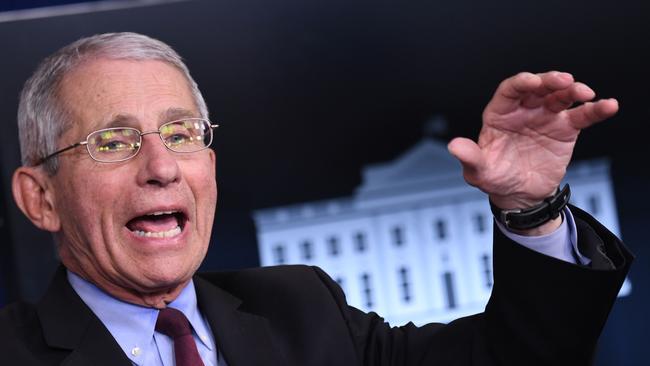
“We are struggling to get it under control — it is going to be a bad week,” he said.
As the number of confirmed cases worldwide reaches 1,252,265 and the number of deaths passes 68,000, US Surgeon General Dr Jerome Adams has warned the country to brace for the “hardest and the saddest week of our lives” as the US rapidly closes in on Italy and Spain as one of the worst-affected countries in the world, recording at least 9420 deaths as of Monday.
“This is going to be the hardest and the saddest week of most Americans’ lives, quite frankly … this is going to be our Pearl Harbor moment, our 9/11 moment,” Dr Adams told Fox News on Sunday.
Mr Trump has also reiterated the severity of the week ahead, but has still refused to stringently enforce social distancing in states that have not instituted lockdowns, like South Carolina and Iowa.
“We have a thing called the constitution, which I cherish,” he said on Sunday.
“Now in some cases we’ll supersede, it depends on the individual state that you’re talking about. If I saw something wrong, if I saw a massive outbreak, of which there’s not, I would come down very hard.”
More Coverage
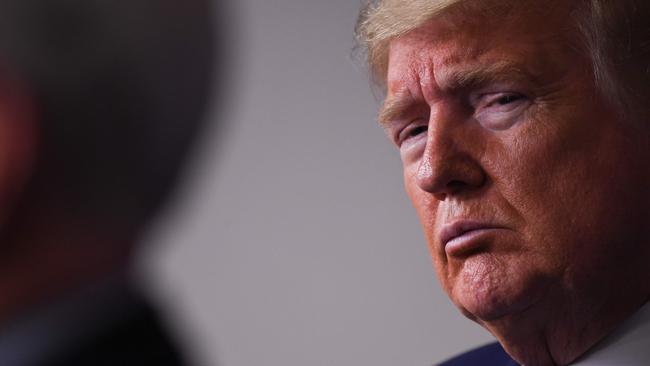

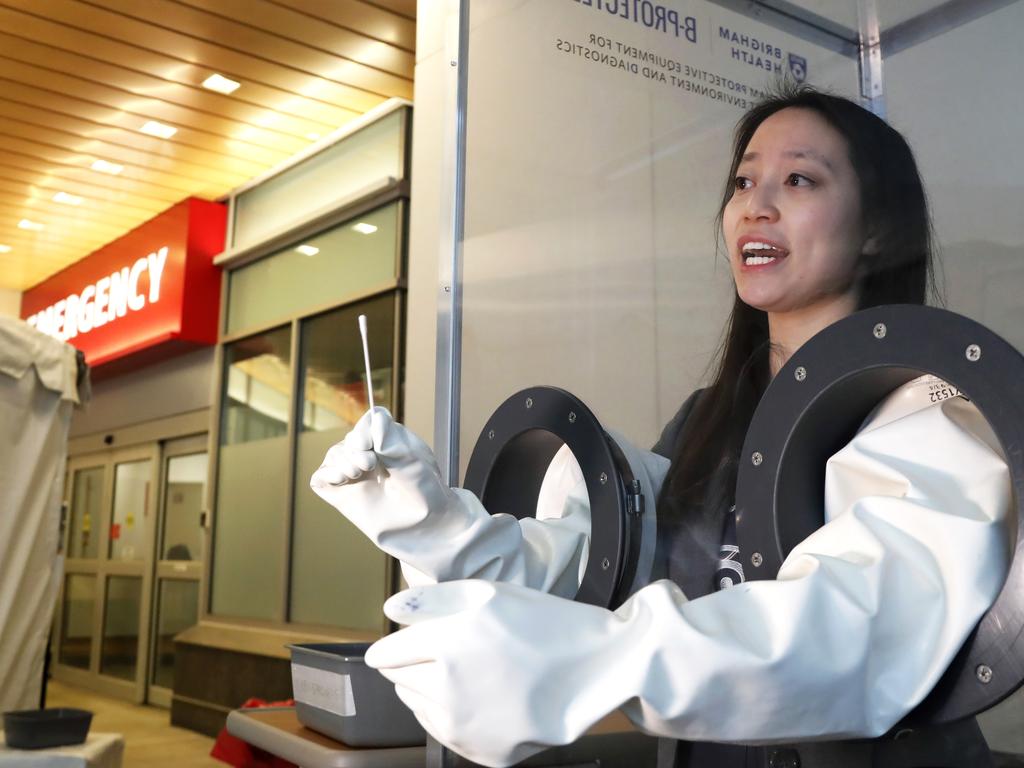
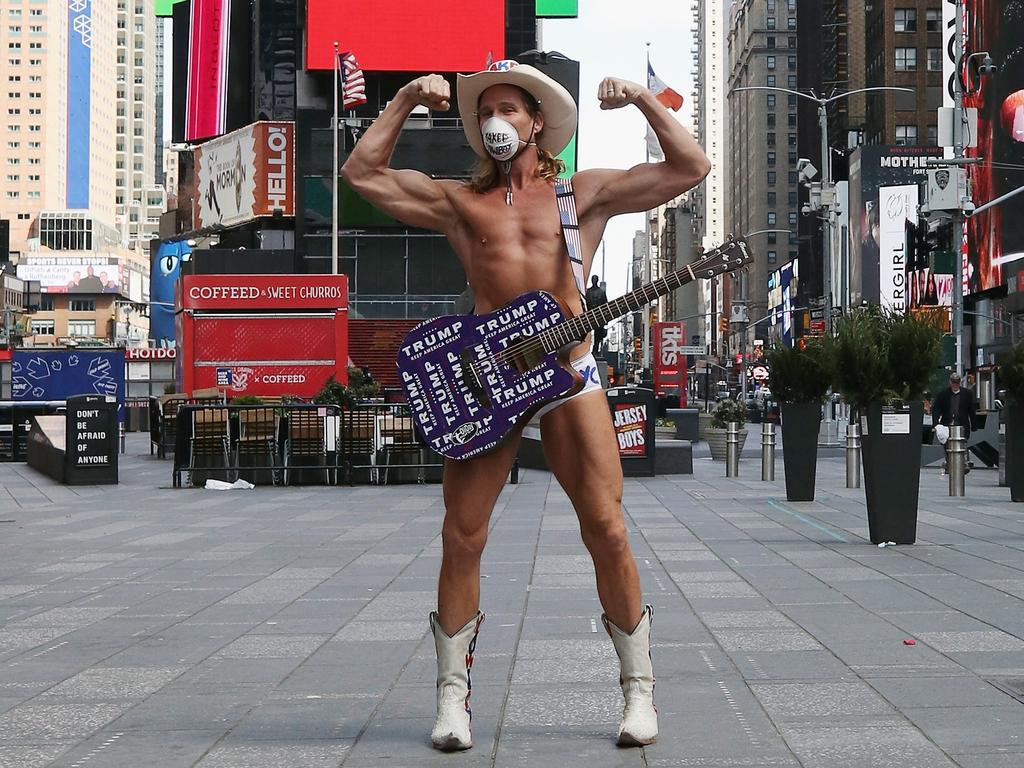

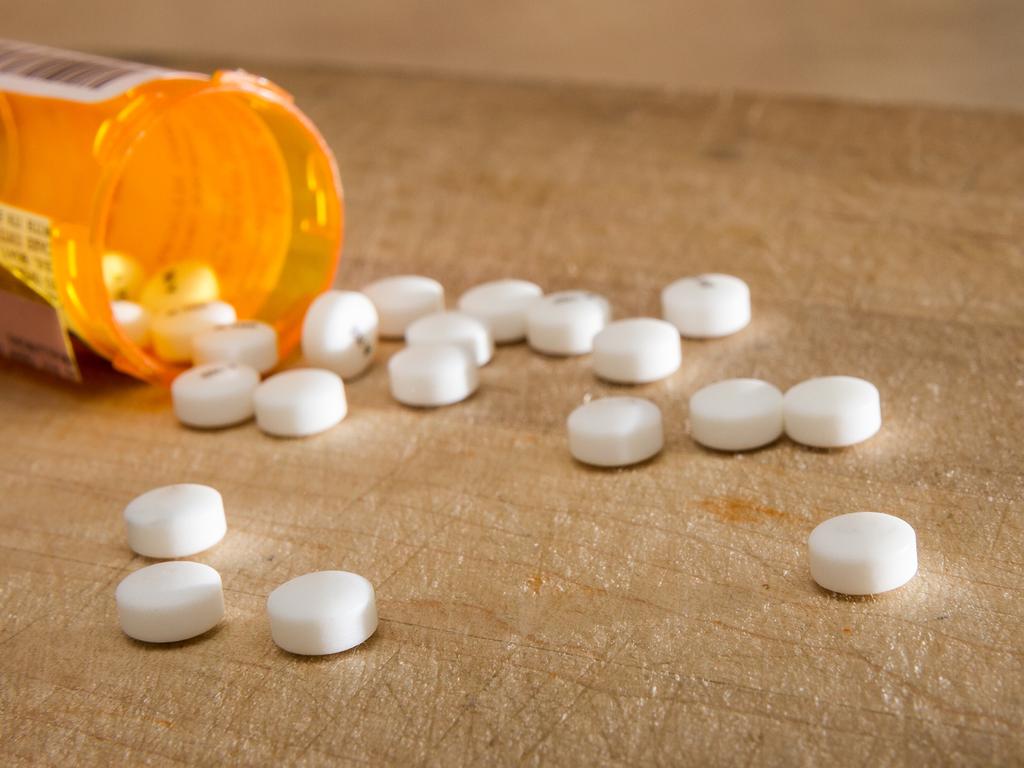


To join the conversation, please log in. Don't have an account? Register
Join the conversation, you are commenting as Logout